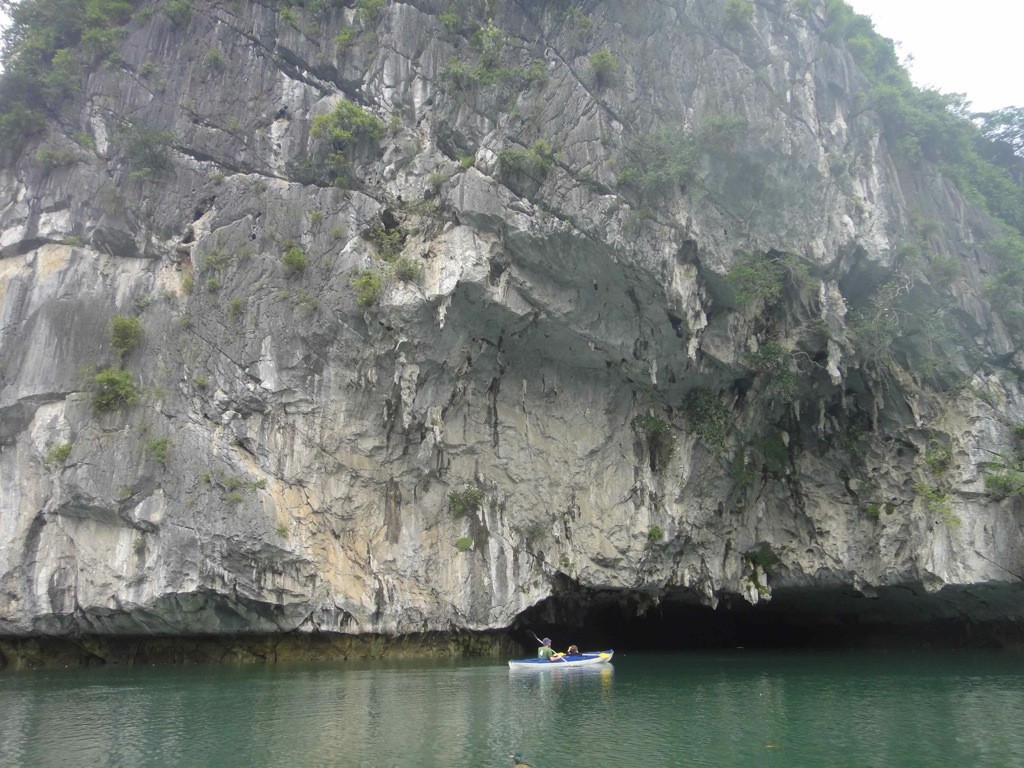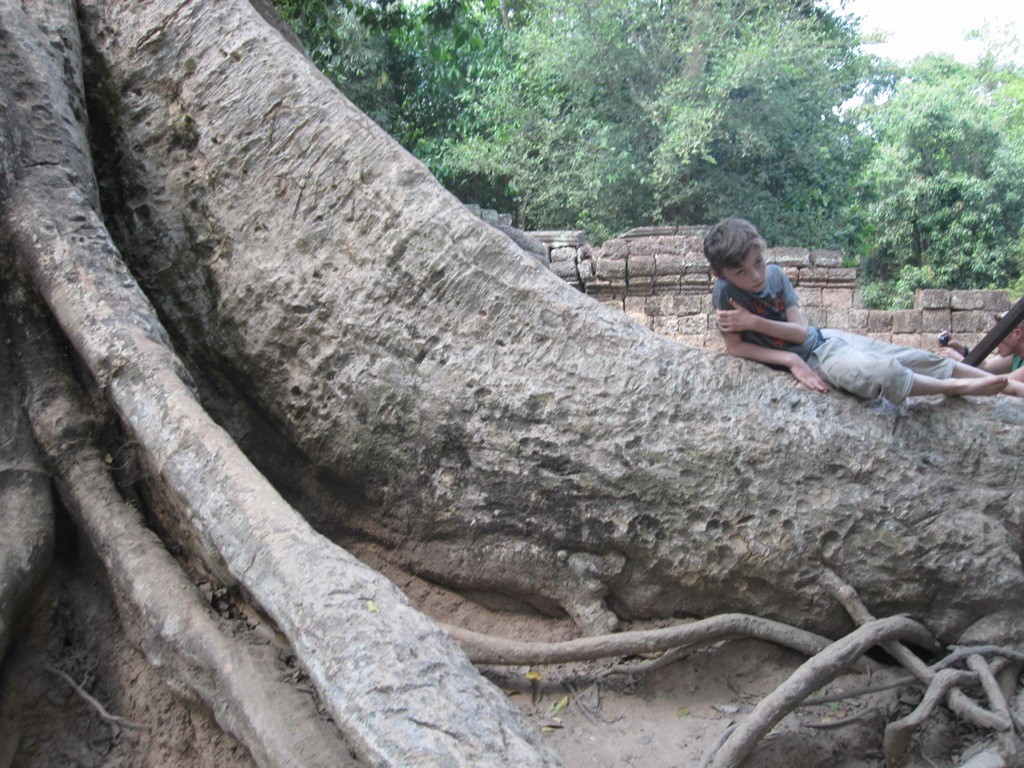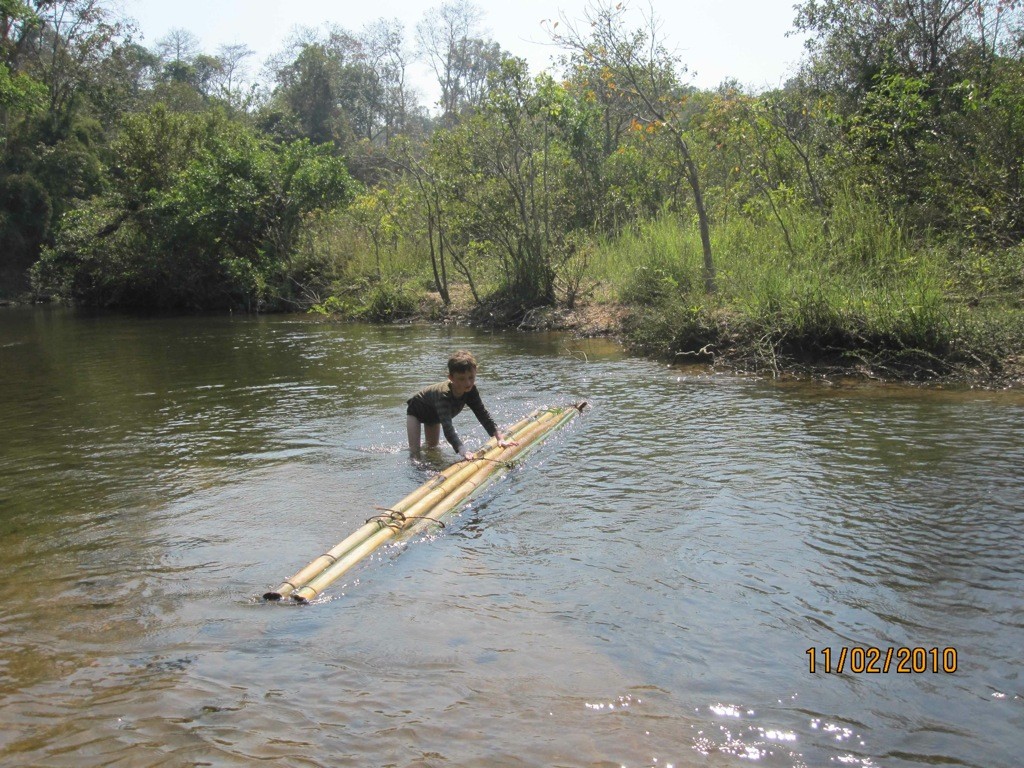Unschooling. Or Learning as You Go.
It’s a truism that one learns by travelling, and a cliche that travel broadens the mind.
From the days when English noblemen embarked on that aristocratic GAP year, the Grand Tour of Europe, to today’s school trips, summer camps, foreign exchanges and volunteer placements, travel has been key to education.
So, when we went to see the nine-year-old’s school before we set out on our long journey around the world, it seemed pretty obvious that he would learn far more travelling on four continents and fifteen or so countries than he would in his (extremely good) London primary.
Although I wouldn’t have expected his headteacher to make that point for me…
One thing I didn’t really know, though, was how the learning would work. So where we’ve ended up, after some vicissitudes, is with an educational philosophy called unschooling.
Like many scarily innovative ideas, unschooling originated in the States in the early days of t’interweb: on AOL listservs, rather than The Well, but, well, you take my point… A lady named Sandra Dodd created the name, taking her inspiration from a Seven-Up ad.
In unschooling, essentially, the child chooses how to learn and what to learn. You look for the learning in what’s around you, find opportunities, then let it happen.
Some central messages of unschooling?
“Let go of learning. It happens anyway.” Yikes!
“Let the child lead.” Blimey!
You can agree between you certain variations on this theme. In our case, this is that he has to write sometimes. (And, yes, err, that is it.)
Now. A year ago, this would all have sounded like crazy hippie shit to me.
However…
Letting junior direct his learning has really worked. (I wrote more about how here.)
When you’re travelling the world, the humanities pretty much teach themselves. You can’t help but learn when you’re meeting survivors of the Pol Pot Regime, visiting the Museum of War Remnants in Saigon, snorkelling World War II gunboats in the Philippines, exploring Angkor Wat or the Purple Palace, meeting young monks in a Cambodian monastery or participating in a Filipino Easter festival.
There are few more beautiful places to appreciate ecosystems in action than coral reef, where you regularly see predators hunting and killing, clownfish protecting their anemone nests, and parrotfish grazing on coral. Geology comes very easily when climbing an active volcano, or kayaking a mature karst landscape. And coconuts sprouting on the beach are germination writ, well, huge…
Actually, even the very simple unschooling strategy of taking the time to find a proper answer to those difficult questions that children ask works in mysterious ways.
Z’s question “What is a positron?” (a positively-charged electron, since you ask…) led us onto anti-matter, quarks, the Big Bang and string theory.
“Who was Kublai Khan?” took us on (via this amazing resource) to Indian, Chinese and Western styles of art and Coleridge. Although I have to say that the fact that Mongol children had to gather animal poo to use as fuel for fires made more of an impression.
Watching The Hitch-Hiker’s Guide to the Galaxy, with its tortuous Vogon poetry, led us onto Jabberwocky and free verse. (Zombieland produced a hilarious guide to Zombie Survival for N0obs.)
Even maths (which bored us both shitless taught traditionally: see here for our nadir) works well. Sir started to speculate about whether computers were moving humans “up or down the evolutionary tree”, which brought up Moore’s Law, arithmetic versus exponential growth and binary numbers. (We even did a graph!)
Roman numerals in chapter headings bring you onto teaching Roman numbers. Money conversions bring you onto market movements, interest rates, exchange rates. Diving theory brings you onto bars, pressures, partial pressures, switching between decimals and percentages. And so on…

Physically, the transformation since we left is astonishing. Since Z was born he’s been long and thin, with the sort of appetite that made my grandmother talk about hollow legs. But he’s much, much stronger and more active than he was. In London a chronic, nay, pathological, dawdler, he now steams ahead of me on hills.
He swims confidently. His balance is good and he climbs well. He’s learning scuba and is teaching himself to meditate. We’ve played a bit of mini golf and I’m hoping to find a good course down south.
When it comes to languages, he’s picking up bits and pieces of the local languages as we travel, and has been teaching himself a little French using Google Translate (when he starts spouting, I start talking back). We’ll be learning Spanish together in Latin America next year.
He draws constantly. And, thanks to all those long train journeys, he’s discovering Dickens (who works amazingly well in transit).
Certainly, compared to ploughing through worksheets or the Year 4 primary syllabus, let alone trying to mimic the type of education homeschoolers provide with a full library, a packed kitchen, ample art supplies and no 36-hour train journeys on the horizon, unschooling works very well. And it takes phenomenally little time.
So…. Crazy hippie shit? Lazy parenting? Or effective educational strategy for some children (especially those at the extreme ends of the ability range)? I’d go with all three of the above, with the emphasis on the third.
But what do you think? Should I be spending more time actually, y’know, teaching him stuff? Or following a syllabus? Did you ever travel longterm with your kids (or did you travel yourself as a child)? And what did you do about education?




LOVE this! as you know, we unschool our daughter. it works so well, esp since kids have an innate sense of curiosity about the world. they can get so engaged (and learn so much) – and we can learn together. YAY!!
Totally concur! And, thanks for all the links you’ve sent me. It does, honestly, seem to be working right now…
One of the most interesting (and successful) people I’ve met in recent years was raised in outback Western Australia by intelligent, educated parents. He had an aptitude for pulling engines apart, so decided to do an appropriate apprenticeship, in town. It was only when they gave him books to read that he decided it was time to learn!
One skill he had learned was problem solving- he followed the local headmaster home and knocked on his door. the man taught him to read.
He’s now a partner in a huge engineering company, that makes stuff for the mining industry, and he’s the go-to man when their clients have problems- somehow his brain was wired differently to all the university educated engineers working for him.
Which is my point- the more kids that step outside “the system”, the more various and interesting brains we have. Universal education systems produce similar thinkers.
Good lord! So, how old was he before he learnt to read? It sounds as though he was well into his teens… Does he have kids yet? Is he raising them similarly, or taking a more conventional route?
Holy *. i’m 33 and i have absolutely no idea what you’re talking about with any of this stuff. (i had a conventional, private education and went to university – surprisingly i know very little). ;<)
Our teaching of history and culture remains very Eurocentric, I think. To be honest, one of the slightly unnerving aspects of unschooling or homeschooling (neither things I would have contemplated in the early years) is realising how very little our primary system actually delivers.
Lazy parenting? Banish the thought! It’s the bliss of the easiest course of action being best. Although it doesn’t always feel easy, and I’ve threatened my two with regular school at least once a week every week of this trip! So, yes, we, too, unschool and find it a perfect fit for travel. So, welcome to the hippy bullshit club…
We started with regular school once a week. FAR too much like hard work. It’s amazing how fast they learn when it’s self-directed, isn’t it?
I love this! I have always noticed how wonderful travel is. My oldest has done the most traveling, and she comes back with a camera full of photos and so many stories, she’s taught me a number of things!
Why, thank you!
What a wonderful post for me to find. Especially because I´m about to travel to Central America with my little one and am considering unschooling her if we keep traveling.
It´s been great for me to find more and more unschoolers around the web with so much information on how they deal with it.
The longest holiday my family ever did when I was growing up was 7 weeks, so there wasn’t really much need to focus too much on our schooling for such a short period. (And often those trips were over Christmas holidays anyway so we wouldn’t be missing much school if any. [Australia’s Christmas holidays are our longest].) But as we would be rejoining our class upon return, I do remember being given a few homework sheets to complete while away. They usually took me a minimal amount of time. My mother also made us (4 siblings) keep a journal of each of our holidays. That’s the most in the way of formal education we had on our holidays. However my mother is a teacher (literally) and so it wouldn’t have been unusual, at home or on holiday, if someone had asked her a maths-related question and she’d launch into a ten-minute mini lesson on fractions or whatever, usually complete with diagrams.
I wonder if you’d need to be a bit more formal about educating if you had several children? I think we (my siblings and I) would have distracted each other and not asked such probing questions. (That said I often overheard my brother asking Dad such questions as “what’s the theory of relativity” or asking about light and waves vs particles when he was about 8 years old, just randomly at home. Weird kid.) Plus you’d have to make sure you were dedicating enough ‘education’ to each child at their different levels. Interesting. It certainly seems to be working with just the one kid though.
I’m new to the “unschooling” concept and curious how/if someone would be able to go to college without any prior formal education? Won’t it be difficult to get a job as an adult with no HS diploma or degree?
That’s an interesting point. Where we’re at at the moment, with a child who’s only ten, I’m actually keeping tabs on his performance against the conventional metrics that are used for UK children his age, and he’s a long way ahead on those.
I think unschooling’s easier as a US citizen, because there’s a SAT score that counts for a lot, and you don’t really need a school, or school-type education to deliver on multiple choice tests — whereas for something like the international baccalaureate, where there’s a lot of learning involved, you might require a more school-y approach.
My impression from Americans who unschool is that unschooled children regularly get into college and universities, because often the projects and folios they show are *far* more sophisticated and in-depth than what kids would do in high school – plus they can deliver high SAT scores, which counts for a lot.
Though it doesn’t seem beyond the bounds of possibilities that an unschooled child could deliver far more sophisticated projects than your average A-Level coursework, to put it very mildly.
I, personally, don’t think we’ll unschool all the way through — I envisage him having more time in a traditional school environment as he gets older (so he has his own space, not least) and I’d like him to get IB (international baccalaureate) probably, as that’s an internationally valid 18yo qualification. I’d see him doing iGCSE. And probably being in school to do that. But he’ll have his own views on what he wants to do, too.
But colleges and universities accept people from a range of educational backgrounds. And he’s currently achieving way ahead of his age group on all the key metrics, so for the moment I’m happy with where we’re at…